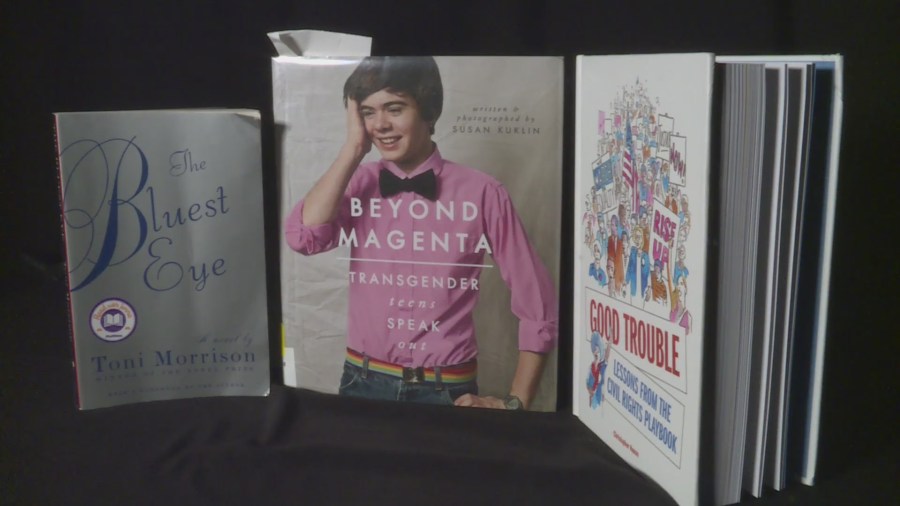VIRGINIA BEACH, Va. (WAVY) – Later this month, Virginia Beach City Public Schools (VBCPS) administrators plan to announce whether or not six books under review will stay in the system’s libraries and curriculum.
The books in question are part of a firestorm in school districts across the country and have been the subject of intense, sometimes angry debate in Virginia Beach school board meetings.
School board member Victoria Manning triggered the book reviews when she emailed superintendent Dr. Aaron Spence with her concerns.
Two of them, Manning told 10 On Your Side, may violate the school’s equity policy, which states curriculum materials “shall be examined for bias by the Department of Teaching and Learning.”
The books are “Good Trouble: Lessons from the Civil Rights Playbook” and “Beyond Magenta: Transgender Teens Speak Out.”
But Natalie Allen, spokesperson for VBCPS said those books are on library shelves, not in curriculum, and that 10 On Your Side’s inquiry was “the first time administration has heard that the reason for bringing ‘Good Trouble’ and ‘Beyond Magenta’ to the system’s attention was because of something to do with the equity policy.”
Still, those books are undergoing a review, along with the four others flagged by Manning for sexual content, including the sexual assault of children and drawings of oral sex.
Some of the passages are so graphic, the school board wouldn’t allow them to be read aloud at a meeting.
“Yet that book is being used in curriculum for our high school students and it’s approved,” Manning said, referring to Toni Morrison’s “The Bluest Eye.”
Virginia Beach high school student Giana Lathan spoke in those same meetings in favor of keeping the books on shelves and in curriculum.
“This is real world stuff. This happens to people all the time,” Lathan said. “It’s better if [students] are exposed to this in a classroom, where they can have open discussions with other peers and teachers and adults around them.”
Another student, Ure Emejuru points out there are plenty more books with graphic content that Manning did not ask to be pulled from schools.
“’1984’ or Shakespeare or parts of the Bible have examples of sexual actions,” Emejuru said. “I think the fact that it’s mainly LGBTQ+ books and books by POC authors is very deliberate.”
By POC, Emejuru means the Black authors who wrote “The Bluest Eye” and “A Lesson Before Dying,” both of which center around issues of race and racism.
“Lawn Boy” and “Gender Queer” are about people struggling with their sexuality and gender identity.
“I don’t care what the background is of the book, if there’s sexually explicit material in it, that’s specifically what I’m looking at,” Manning said. “I want there to be a serious review of all the books that we have.”
Manning pitched the idea to the school board but said it did not garner enough support to happen.
For six books alone, the review process involves hours of reading and discussion by more than 30 people.
For each book, the school system convenes a committee of six to seven people, including a parent, student, library media specialist and administrators, according to Chief Academic Officer Dr. Kipp Rogers.
“They read the book and then come back together […] and determine whether there is alignment with our instructional philosophy in the school district,” Rogers said.
Normally, Rogers said, concern about curriculum materials is resolved at the building level during conversations between a parent and principal.
In his 11 years in school administration, Rogers said he could recall only “three other times where it’s gotten to the central office where we have to do a formal review.”
Not once was a book pulled from the system, something Manning wants to change.
“It’s my job, not only as a parent but as a school board member to make sure that our children aren’t being exposed to pornography and sexually explicit material at school,” she said.
Rogers is hopeful the current reviews serve as an educational opportunity for parents, students and the community.
“It’s our responsibility to help them understand the rationale as to why these things are included in what we’re providing for our students,” he said. “Young adults are curious about the world around them, they’re curious about themselves and they’re curious about things that may not necessarily align with individuals’ beliefs or value systems.”












































































































